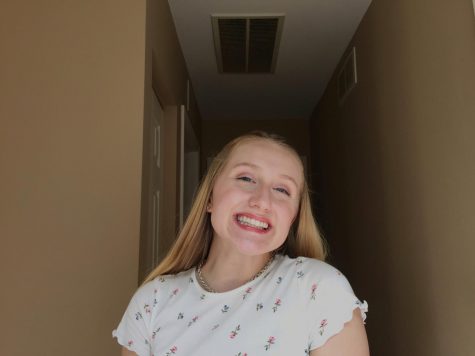Panorama Program helps to develop emotional skills
February 27, 2020
Panorama Program helps students develop emotional skills
The Panorama Student Survey is one of the latest programs the school has adopted in attempt to provide support for students.
The survey will be given to students twice a year to identify students who appear to be lacking social and emotional skills.
“It’s a series of questions that all students at a certain age will take. They’re doing it in middle schools too, and we are getting on a set schedule,” Dave Stephens, principal, said.
Since we have only been using it for two years, the panorama program is still in its data collection stage. Parents received a letter informing them about the survey and were given a choice to opt out of the program.
“This is still in its infancy stages, but what we want to do is address… grit, growth mindset, self-management, social awareness, and self-advocacy… if we see deficits in those specific areas,” Julie Godkin, social worker, said.
Once the survey is taken, the data gets sent back to the school. They can look at data of individual students and the school as a whole, but also sort by gender, race, and grade level.
This data will hopefully help implement more support to students throughout the school day, aside from the groups available in student services.
“First semester we did groups for anxiety, academic interventions, healthy relationships, and social skills,” Godkin said.
Students with Panorama survey scores reflecting that they need help in certain areas were eligible to participate. These groups are only available for recommended students based off Panorama survey scores. There is a chance that all students will be able to work on their social emotional skills, though.
“I’m really hoping that we build an intervention piece into our day. Something that’s short, it’s not super time consuming, kind of like we have ROAR where we have that time to open it up to that reading piece,” Godkin said.
Although it would be separate from ROAR time, giving students a specific time, similar to ROAR, to practice their coping skills may be beneficial according to Godkin.
“Maybe [we can do] something along those lines to help build these skills, maybe once a week in our building if teachers are able to work it into their classroom,” Godkin said.
The panorama program isn’t just for giving students coping skills, but also to give them skills to be successful elsewhere.
“When we talk about some of those soft skills, skills needed for employment, skills needed for college interviewing, and moving on, these are the things we want to build within our students that go beyond the… academic piece, but also making sure they have that social emotional intelligence moving forward,” Godkin said. “We want to ensure that they’ve build some of those skills to help them be successful after high school.”
These groups are only available for recommended students based off Panorama survey scores. There is a chance that all students will be able to work on their social emotional skills, though.
“I’m really hoping that we build an intervention piece into our day. Something that’s short, it’s not super time consuming, kind of like we have ROAR where we have that time to open it up to that reading piece,” Godkin said.
Although it would be separate from ROAR time, giving students a specific time, similar to ROAR, to practice their coping skills may be beneficial according to Godkin.
“Maybe [we can do] something along those lines to help build these skills, maybe once a week in our building if teachers are able to work it into their classroom,” Godkin said.
The panorama program isn’t just for giving students coping skills, but also to give them skills to be successful elsewhere.
“When we talk about some of those soft skills, skills needed for employment, skills needed for college interviewing, and moving on, these are the things we want to build within our students that go beyond the… academic piece, but also making sure they have that social emotional intelligence moving forward,” Godkin said. “We want to ensure that they’ve build some of those skills to help them be successful after high school.”



